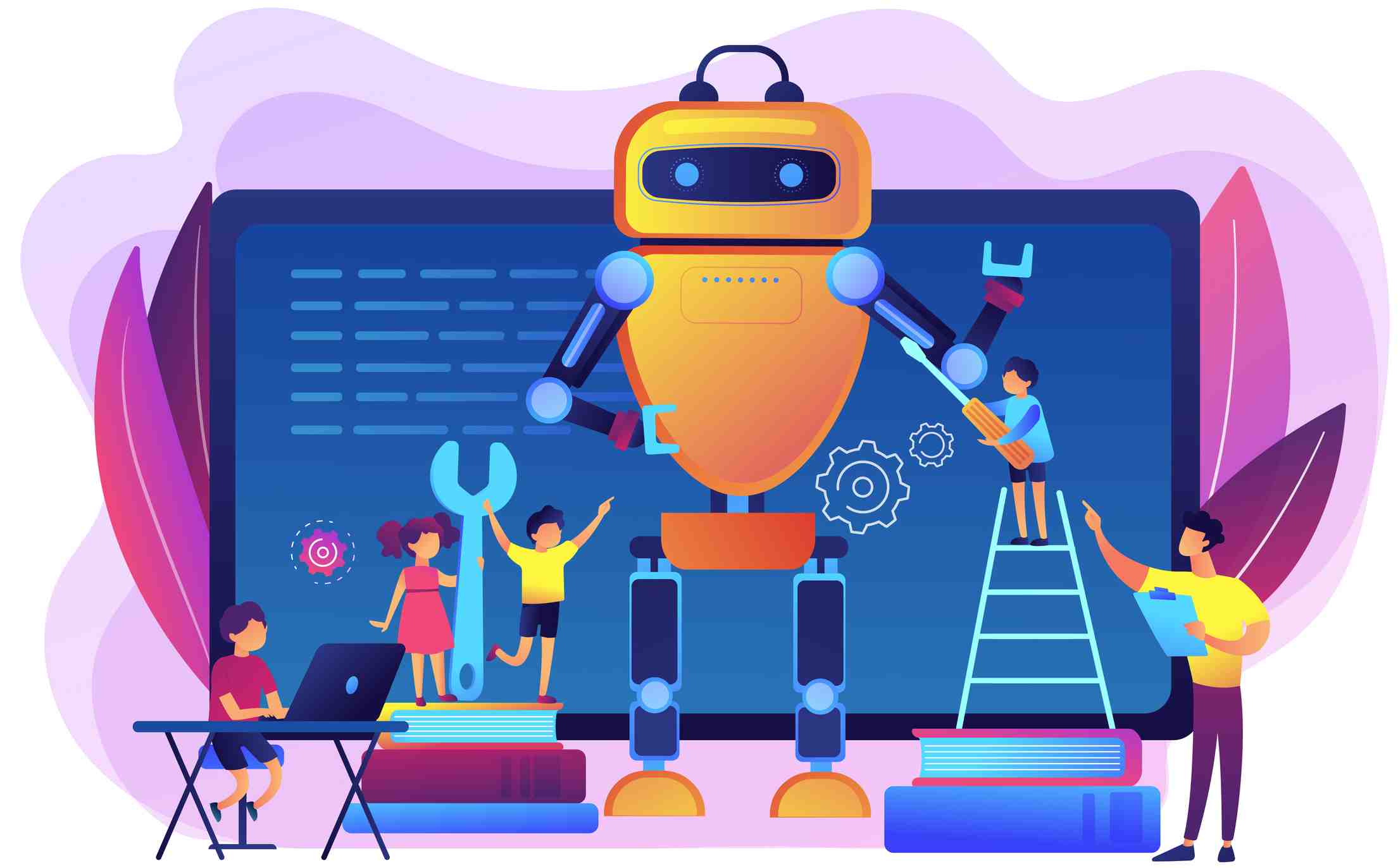
AI in Education: Pros, Cons, and Future Landscape
The Indian education landscape is witnessing a drastic shift, fueled by the huge potential of Artificial Intelligence (AI). From smart classrooms to personalized learning experiences, AI promises to revolutionize the way we learn and teach. But before we leap onto this futuristic bandwagon, it's crucial to understand the multifaceted nature of AI in education – its undeniable pros, potential pitfalls, and what it holds for the future

Pros: AI as a Powerful Educational Ally
- Personalized Learning: AI algorithms can analyze vast amounts of learner data, tailoring learning paths based on individual strengths, weaknesses, and learning styles. This individualized approach ensures learners are challenged appropriately, fostering deeper engagement and knowledge retention.
- Adaptive Learning Technology AI-powered platforms can adjust difficulty levels and learning materials in real-time, responding to a learner's individual progress. This dynamic adaptation ensures learners are neither bored nor overwhelmed, optimizing their learning journey.
- Automated Grading and Feedback AI can take over tedious tasks like grading multiple-choice questions, freeing up teachers' time for more personalized feedback and interaction with learners. Additionally, AI-powered feedback tools can provide instant, specific suggestions for improvement, accelerating learning progress.
- Virtual Tutors and Language Learning AI-powered tutors can offer 24/7 support, addressing learner queries and providing additional practice outside the classroom. This personalized attention can be particularly beneficial for learners needing extra help or those in remote locations. Additionally, AI language tutors can create immersive environments for practicing pronunciation and conversation, enhancing language learning experiences.
- Data-Driven Insights for Teachers By analyzing learner performance data, AI can provide educators with valuable insights into class dynamics, learning gaps, and areas requiring improvement. This data-driven approach empowers teachers to personalize their teaching strategies and target interventions more effectively.
Cons: Potential Challenges to Address
- Equity and Bias AI algorithms are only as good as the data they're trained on. If biased data is used, it can perpetuate existing inequalities and widen the educational gap. Robust measures are needed to ensure datasets are inclusive and representative of diverse learner populations.
- Data Privacy Concerns Collecting and utilizing learner data raises privacy concerns. Clear ethical guidelines and regulations are crucial to safeguard learner privacy and prevent misuse of data.
- Over-reliance on Technology While AI can be a valuable tool, it shouldn't become a replacement for human interaction in the classroom. The human element of teaching, with its empathy, creativity, and critical thinking skills, remains irreplaceable.
- Cost and Implementation Challenges Implementing AI-powered tools requires significant investment, both financial and technical. Additionally, integrating these tools seamlessly into existing educational systems can present challenges.
- Limited Availability of High-Quality Resources While the field is rapidly evolving, high-quality, contextually relevant AI-powered educational resources are still limited, particularly in India.
There is a popular saying, “I fear the day that technology will surpass our human interaction.The world will have a generation of idiots.” Hope this will not come true.
Future: A Collaborative Journey with AI
Despite the challenges, the potential of AI in education remains immense. As we move forward, navigating this landscape effectively requires a collaborative approach:
- Investing in Research and Development Ongoing research is crucial to ensure AI in education is ethical, equitable, and addresses diverse learning needs.
- Teacher Training and Support Equipping teachers with the skills and knowledge to leverage AI effectively is essential for successful implementation.
- Transparency and Ethical Frameworks Open dialogue and clear ethical guidelines are critical to ensure responsible and transparent development and use of AI in education.
- Public-Private Partnerships Collaboration between governments, technology companies, and educational institutions can accelerate the development and implementation of ethical and effective AI solutions.
By addressing the challenges and fostering collaboration, we can harness the power of AI to create a future where education is personalized, engaging, and accessible to all.
Remember, AI is not a magic bullet, but a powerful tool that can enhance, not replace, the irreplaceable role of teachers and human connection in the learning process.